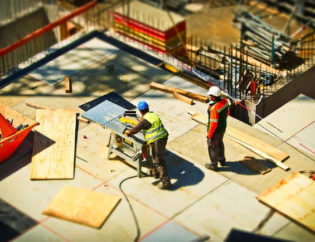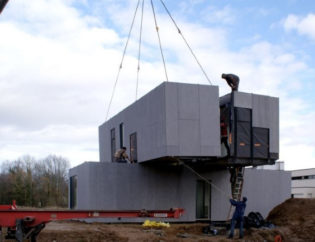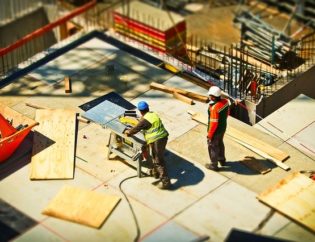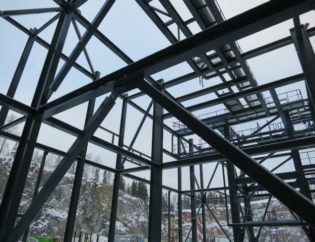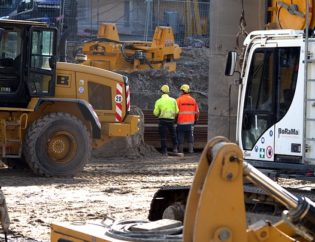
Insurance of modular structure is one topic that is gaining popularity continuously. Modular builders and people who wish to choose the modular type of construction both have the same interest in knowing more about modular structure’s insurance. Because the modular structures are still considered quite unique, it also raises some unique liability issues and accordingly, insurance needs. So let us understand everything about the insurance for these constructions and why it is even required.
Why Should You Insure Your Modular Structure?
Accidents and mistakes can happen when building a modular structure, regardless of the type of construction. Since the right insurance can mitigate the damages, you need to ensure you’re thoroughly covered. Here are some reasons why you must get insured.
To Cover Workers
Workers often get hurt during construction processes. But what about something more serious? Something like a worker falling and getting seriously hurt. Or even worse, a crew member getting killed when they fall from your roof. If a mishap happens with your contractors and workers while the project is in progress, you will have to cover all the losses. When you hire modular contractors from a reputed company, they will be insured against any accidents during the construction process. But that isn’t enough. You need to add an extra layer of protection to all your workers’ lives because it is your modular project.
To Cover Neighbours and Their Assets
Your workers aren’t the only ones at risk. Imagine the on-site installation is going on, and due to a slight failure, a passer-by is injured. Or a neighbour’s child is seriously hurt when he falls into your cellar hole before your modules are set on the foundation. Or one of the trucks delivering your modules strikes your neighbour’s car causing serious damage. Those people will hold you liable for these losses and damages as it is your project that caused the damage. That’s when your insurance policy will help you. A lot of policies cover the cost of damages (liability coverage) caused due to your building materials and machinery to others.
To Cover Materials and Modules
It is true that the completed modules themselves can be damaged or destroyed in transit, which would cause major construction losses and delays. The insurance policy will most likely cover these losses and damages caused to the modules. On the other hand, material supply chain risk for the modular construction would be the same or less than traditional construction. Modular companies can have better supply access and stocking capacity than traditional construction. But in case any damages happen to the materials, those damages will be covered too.
Some Common Insurance Coverages
The coverages offered can vary from company to company and insurance plan to plan. Depending on which insurance policy and the provider you choose, the benefits, coverages, premiums, and everything else may vary. However, here are some of the common coverages that almost all insurance-providers offer.
Dwelling Coverage
This coverage pays for repairs to the modular structure if it’s damaged. This includes damage to the exterior and interior walls of the building, roof and some internal systems, like wiring, plumbing, and heating. In the most common type of, the structure is protected against “open perils,” which is only subject to a few named exclusions, like war.
Liability Protection
Liability protection covers medical and legal expenses for other people. The most common scenario under which you’d make a liability claim is if someone is injured on your property, such as from a fall or a dog bite. But you might also need it if someone sues you for libel, for example.
Additional Living Expenses
Additional living expenses (ALE) coverage, also called loss of use coverage, pay for extra expenses you incur if your modular structure is uninhabitable. For example, ALE coverage would pay for a mobile office if your modular building caught fire until the building is repaired and ready to use once again.
Other Coverages
There are many other protections available for modular structure’s insurance, such as coverage for a detached building like a garage, debris removal and identity theft protection. Availability of these additional coverages varies by insurer, so you may need to check with multiple companies if there is a specific coverage you’re looking for.
If a project’s fabrication processes are co-mingled with other manufacturing operations at a centralized location, then incorporating those operations into project-specific insurance would be very difficult. However, if manufacturing employees were to be dedicated to each project, and if a dedicated section of the location could be identified, then you might be able to set the conditions necessary to carve out the exposures. The manufacturing location would likely be covered by modular contractor’s policy, and project policies would shrink significantly since a substantial exposure would be eliminated from the jobsite. Your modular builder should be incorporating hold harmless clauses and additional insured requirements in your favour into your contracts with subs. In addition, they should provide similar indemnification upstream to you, if any. Some new considerations can be introduced if you are outsourcing the transportation of the modules and the crane operations.
Do you see why is it crucial to insure the contractor rights and workers, and also the entire modular structure project? Insuring your contractors and workers is a long-term measure. But make sure that you hire modular contractors who are entirely covered with the right insurance plan. Don’t hire modular dealers and builders who aren’t properly covered or else the entire burden of liabilities will fall on your head. And whenever you start a new modular structure construction, make it a point to get the right coverage for it. You will have to take care of that.
If you are looking for insured and licensed modular builders, you can get in touch with Cormode & Dickson. We provide complete modular construction solutions, plus we are fully covered with the right insurance plans.


